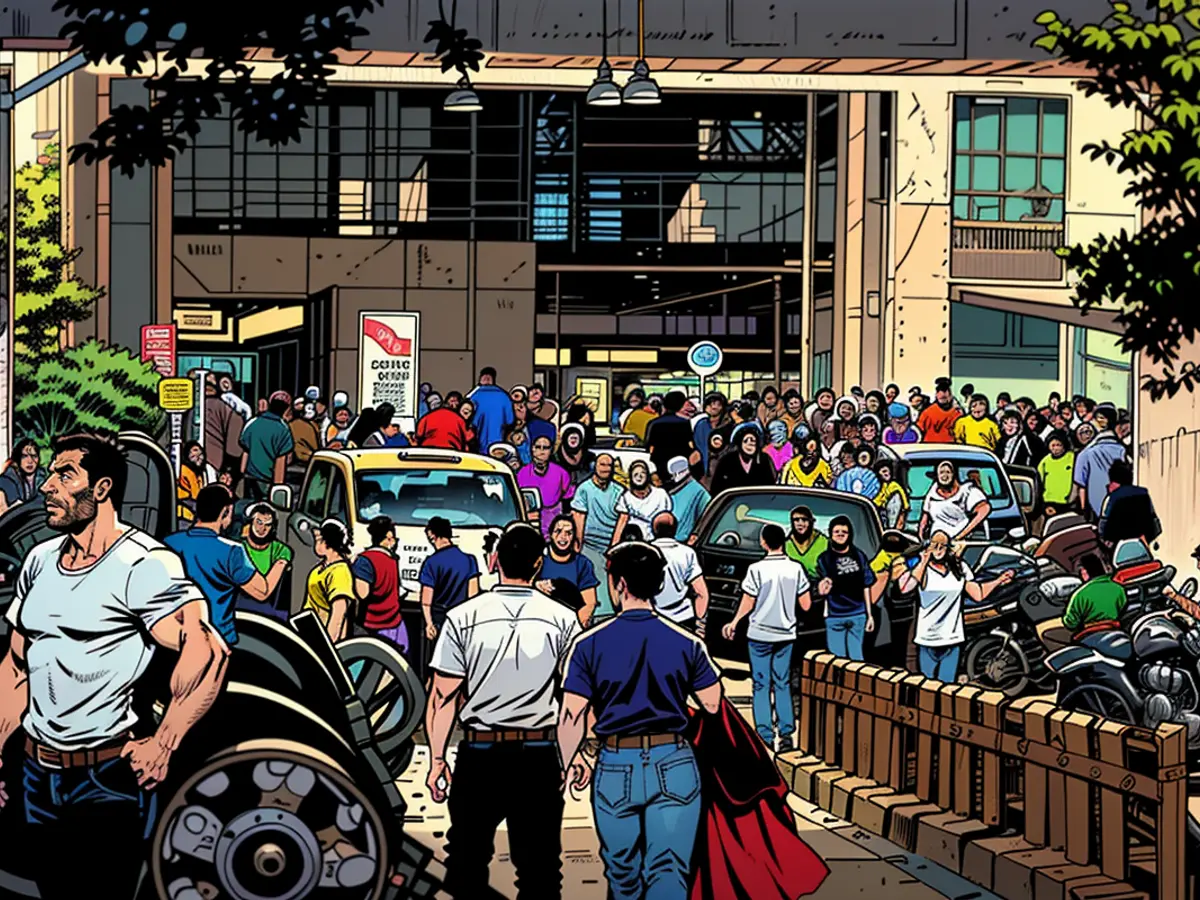Lebanon's series of pager blasts serves as a covert signal to Hezbollah.
Last Tuesday's series of explosions in Lebanon is expected to leave a lasting impact on Hezbollah, commonly referred to as the Party, known for their secrecy and the tech-silence their members strictly adhere to. The incident, which resulted in several fatalities and thousands of injuries, seems to have been caused by their reliance on low-tech pagers instead of smartphones, which are more trackable.
This incident has left Hezbollah members questioning the safety of communicating with their colleagues and their well-being.
Israel, as usual, has not claimed responsibility, but if they are indeed behind the attacks, as Lebanon and Hezbollah suggest, then the question arises if this massive and unparalleled attack was a prelude to a larger military confrontation.
From a strategic standpoint, it would make sense to cause a moment of chaos before a larger military offensive on Hezbollah.
The timing is significant. Just the day before, Israeli Defense Minister Yoav Gallant mentioned during a meeting with US envoy Amos Hochstein that the time for diplomacy with Hezbollah was over and military power should take the lead. Hardly any time had passed when their enemy's entire communication infrastructure was hit by an attack, according to a Lebanese security source, that used pagers supposedly purchased by Hezbollah in recent months, requiring careful planning and execution of the operation.
Once again, the technological chasm between Israel and its adversaries was evident. In high-profile killings in Tehran over the past years, for instance, the precision of an apparent Mossad strike against an al-Qaeda leader in 2020 is noteworthy. The killing of nuclear scientist Mohsen Fakhrizadeh reportedly utilized facial recognition and a machine gun. Also, the recent assassination of Hamas leader Ismail Haniyeh allegedly employed a remote-controlled bomb hidden in a guest bedroom.
Similarly, during the Lebanon incidents, Israeli superior intelligence and capabilities were showcased. While the precision was missing, leading to widespread blasts where civilians were caught, the horror of what seemed like simultaneous and intimate explosions was felt by ordinary Lebanese, reminding them of the damage inflicted nationwide by the 2006 war with their neighbor. The possibility of another widespread war with Israel has become a serious concern since the October 7 attacks.
However, Hezbollah finds itself in another challenging scenario, faced with confusion and under intense pressure to reestablish its strength. The dilemma was similar in the aftermath of the assassination of senior commander Fu’ad Shukr in August, who they felt compelled to retaliate against and maintain a sense of deterrence, despite showing a lack of enthusiasm for a larger conflict.
Meanwhile, the commonly held belief that Israel does not want war is losing its allure. Almost daily, Israeli airstrikes target Hezbollah's northern allies, with little concern for Hezbollah's response. The widespread attack on Lebanon on Tuesday will necessitate Hezbollah to swiftly regain its strength through retaliation, but it also highlights the gap between their capabilities and those of Israel.
A long-term ground war between the two would put Israeli forces, fatigued by the year-long Gaza campaign, against a more fresh and better-trained opponent to the north. Hezbollah will still pose a significant threat to Israel in case of a full-scale confrontation. But it is questionable if Israel thinks Hezbollah is avoiding war, justifiable enough to provoke them repeatedly.
It may be the sort of miscalculation that leads to an expansion of the conflict. The moment Hezbollah feels Israel underestimates them as a constant threat is the moment they might feel compelled to act most violently.
The pager blasts suggest a conflict where one side has a significant technological advantage but is willing to shoulder the risks associated with causing widespread embarrassment to its foe. In the coming days, we will find out if the planning behind the attack managed to avoid escalation or if it instigated it.
The incident has sparked concerns among Hezbollah members about the safety of their communication methods on a global scale.The world is watching closely to see how Hezbollah will respond to this attack, given their history of retaliation in similar circumstances.








